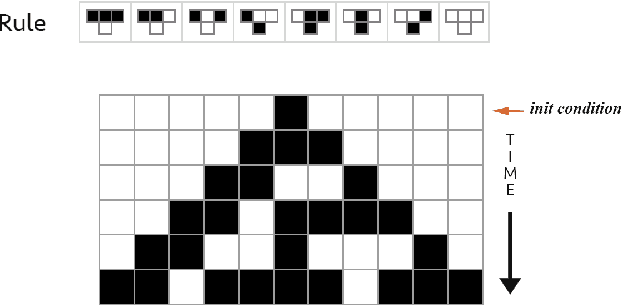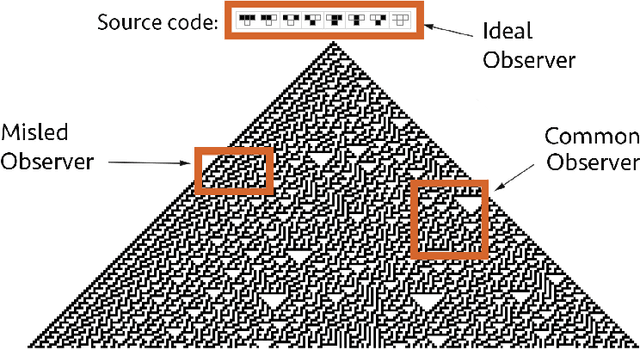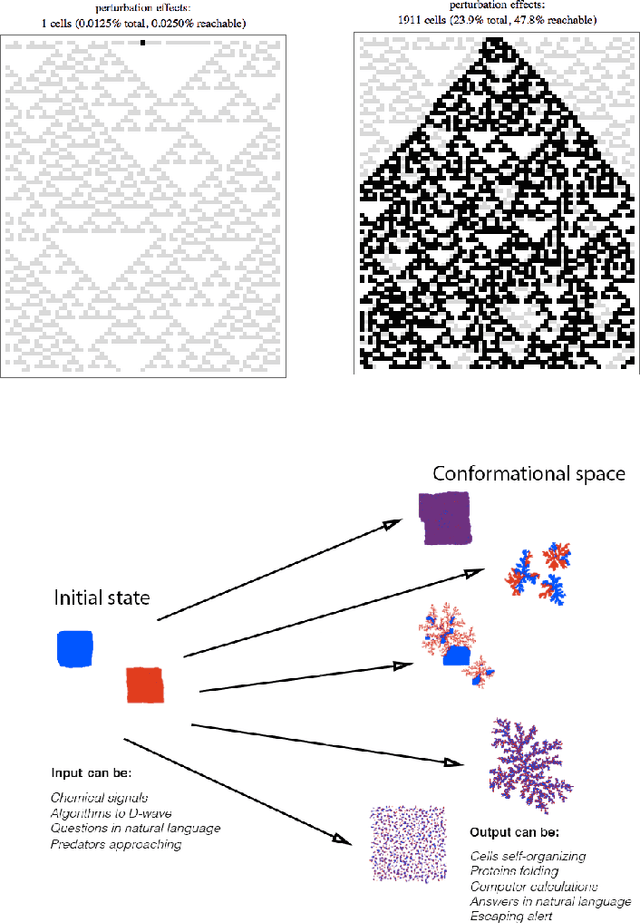Angelika Schmidt
Causality, Information and Biological Computation: An algorithmic software approach to life, disease and the immune system
Jan 20, 2016



Abstract:Biology has taken strong steps towards becoming a computer science aiming at reprogramming nature after the realisation that nature herself has reprogrammed organisms by harnessing the power of natural selection and the digital prescriptive nature of replicating DNA. Here we further unpack ideas related to computability, algorithmic information theory and software engineering, in the context of the extent to which biology can be (re)programmed, and with how we may go about doing so in a more systematic way with all the tools and concepts offered by theoretical computer science in a translation exercise from computing to molecular biology and back. These concepts provide a means to a hierarchical organization thereby blurring previously clear-cut lines between concepts like matter and life, or between tumour types that are otherwise taken as different and may not have however a different cause. This does not diminish the properties of life or make its components and functions less interesting. On the contrary, this approach makes for a more encompassing and integrated view of nature, one that subsumes observer and observed within the same system, and can generate new perspectives and tools with which to view complex diseases like cancer, approaching them afresh from a software-engineering viewpoint that casts evolution in the role of programmer, cells as computing machines, DNA and genes as instructions and computer programs, viruses as hacking devices, the immune system as a software debugging tool, and diseases as an information-theoretic battlefield where all these forces deploy. We show how information theory and algorithmic programming may explain fundamental mechanisms of life and death.
 Add to Chrome
Add to Chrome Add to Firefox
Add to Firefox Add to Edge
Add to Edge